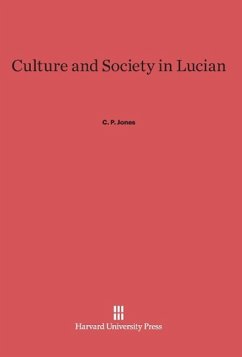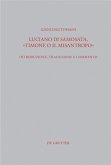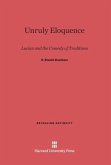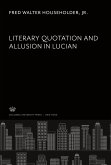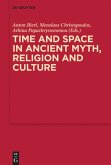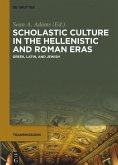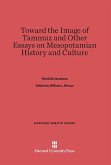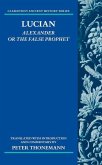The works of the second-century satirist Lucian--of which about seventy survive--have had a marked influence on western literature since the Renaissance. Translated by Erasmus, and called "inimitable" by Gibbon, Lucian is the first to tell the famous story of the Sorcerer's Apprentice. His subjects range from the hypocrisy of philosophers to fantastic voyages in space. He is often thought the true father of science fiction and, at the same time, is one of the most important witnesses to early Christianity. C. P Jones examines Lucian's work, setting this brilliant writer in the social and intellectual context of an age that proved pivotal in Greco-Roman history.
Lucian's art has been widely considered bookish, concerned with people and customs he and his readers knew only from literature. Jones argues that on the contrary his attacks on such targets as mercenary Stoics and the snake-god Glycon were aimed with mischievous precision. The result is a fresh portrait of Lucian and a vivid picture of a society whose outward assurance masked uncertainty and the onset of profound change.
Lucian's art has been widely considered bookish, concerned with people and customs he and his readers knew only from literature. Jones argues that on the contrary his attacks on such targets as mercenary Stoics and the snake-god Glycon were aimed with mischievous precision. The result is a fresh portrait of Lucian and a vivid picture of a society whose outward assurance masked uncertainty and the onset of profound change.
[Culture and Society of Lucian] is obligatory reading for scholars interested in the Greek world of the early imperial period and its literature.
With this book C. P. Jones does for Lucian what he has done previously for Plutarch and Dio Chrysostom: he situates a literary figure in a vividly realized historical landscape, the Roman Empire of the second century A.D., using his vast knowledge of the epigraphic remains, political history, and written records of the era. Like Jones' earlier works, this book should be useful to students of later antiquity, especially those interested in the complex literary and artistic world of the Greek East.
The works of Lucian of Samosata, the second-century satirist, are not only a delight to the reader, but they also provide a wealth of information regarding the culture and society of the Greek and Roman world. As his previous studies on Plutarch and Dio Chrysostom have shown, C.P. Jones is eminently equipped to guide modern readers, as it must be done in every generation anew, to the words of Lucian. For the scholar already familiar with the author, there is plenty of new information and new insights.
Lucian, the second-century CE author of satirical essays in classicizing Greek, was no mere bookish antiquarian. Jones depicts him as a critical observer of his own times, whose sketches tell us much about philosophy, religion, rhetoric, superstition, and politics as practiced in the Roman Empire, from Rome to Athens and points east.
With this book C. P. Jones does for Lucian what he has done previously for Plutarch and Dio Chrysostom: he situates a literary figure in a vividly realized historical landscape, the Roman Empire of the second century A.D., using his vast knowledge of the epigraphic remains, political history, and written records of the era. Like Jones' earlier works, this book should be useful to students of later antiquity, especially those interested in the complex literary and artistic world of the Greek East.
The works of Lucian of Samosata, the second-century satirist, are not only a delight to the reader, but they also provide a wealth of information regarding the culture and society of the Greek and Roman world. As his previous studies on Plutarch and Dio Chrysostom have shown, C.P. Jones is eminently equipped to guide modern readers, as it must be done in every generation anew, to the words of Lucian. For the scholar already familiar with the author, there is plenty of new information and new insights.
Lucian, the second-century CE author of satirical essays in classicizing Greek, was no mere bookish antiquarian. Jones depicts him as a critical observer of his own times, whose sketches tell us much about philosophy, religion, rhetoric, superstition, and politics as practiced in the Roman Empire, from Rome to Athens and points east.
[Culture and Society of Lucian] is obligatory reading for scholars interested in the Greek world of the early imperial period and its literature.
With this book C. P. Jones does for Lucian what he has done previously for Plutarch and Dio Chrysostom: he situates a literary figure in a vividly realized historical landscape, the Roman Empire of the second century A.D., using his vast knowledge of the epigraphic remains, political history, and written records of the era. Like Jones' earlier works, this book should be useful to students of later antiquity, especially those interested in the complex literary and artistic world of the Greek East.
The works of Lucian of Samosata, the second-century satirist, are not only a delight to the reader, but they also provide a wealth of information regarding the culture and society of the Greek and Roman world. As his previous studies on Plutarch and Dio Chrysostom have shown, C.P. Jones is eminently equipped to guide modern readers, as it must be done in every generation anew, to the words of Lucian. For the scholar already familiar with the author, there is plenty of new information and new insights.
Lucian, the second-century CE author of satirical essays in classicizing Greek, was no mere bookish antiquarian. Jones depicts him as a critical observer of his own times, whose sketches tell us much about philosophy, religion, rhetoric, superstition, and politics as practiced in the Roman Empire, from Rome to Athens and points east.
With this book C. P. Jones does for Lucian what he has done previously for Plutarch and Dio Chrysostom: he situates a literary figure in a vividly realized historical landscape, the Roman Empire of the second century A.D., using his vast knowledge of the epigraphic remains, political history, and written records of the era. Like Jones' earlier works, this book should be useful to students of later antiquity, especially those interested in the complex literary and artistic world of the Greek East.
The works of Lucian of Samosata, the second-century satirist, are not only a delight to the reader, but they also provide a wealth of information regarding the culture and society of the Greek and Roman world. As his previous studies on Plutarch and Dio Chrysostom have shown, C.P. Jones is eminently equipped to guide modern readers, as it must be done in every generation anew, to the words of Lucian. For the scholar already familiar with the author, there is plenty of new information and new insights.
Lucian, the second-century CE author of satirical essays in classicizing Greek, was no mere bookish antiquarian. Jones depicts him as a critical observer of his own times, whose sketches tell us much about philosophy, religion, rhetoric, superstition, and politics as practiced in the Roman Empire, from Rome to Athens and points east.

